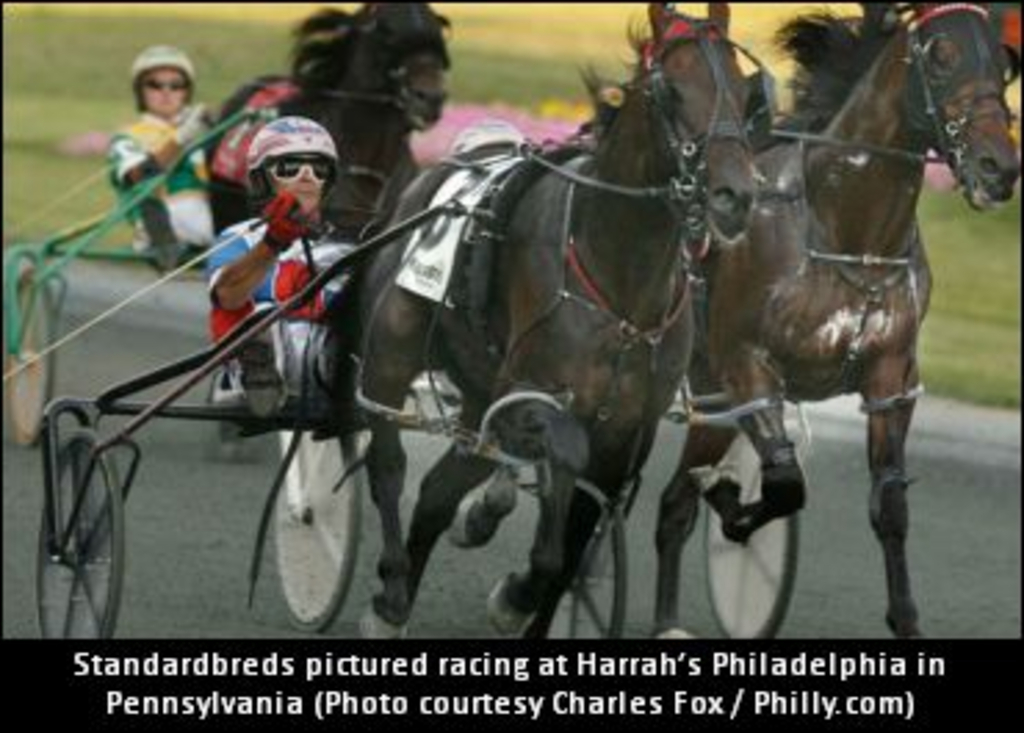New Medication, Testing Rules In PA

Pennsylvania Agriculture Secretary Russell Redding has announced that aggressive new regulations instituted by the state Horse Racing Commission are proving effective in strengthening the integrity of the state’s equine racing industry.
Redding, who serves as chairman of the state’s Horse Racing Commission, noted that three new regulations demonstrate the state’s ongoing commitment to protect equine athletes from illegal performance-enhancing drugs. The commission’s statutory and regulatory authority was significantly enhanced under the Race Horse Reform Act passed in 2016 (Act 114).
“When we set out to reform the state’s racing industry, two of our goals were to secure the long-term funding of our oversight work, but also to enable the state Horse Racing Commission to better protect the integrity of the sport,” said Redding. “This year, the commission has taken a number of significant steps to meet that second objective, approving a trifecta of regulations that will better protect horses and the legitimacy of racing outcomes. The three new measures have outlined significant consequences for trainers, veterinarians and owners from Pennsylvania and other states who violate our regulations.”
The new regulations target the use of prohibited substances and outline the consequences when race horses test positive, Redding explained.
The first regulation, approved at the commission’s January 2017 meeting, is designed to enhance penalties for repeat offenders by assessing points for violations of Class 1 through Class 5 medication guidelines established by the Association of Racing Commission International (ARCI). The new Multiple Medication Violation regulation assigns penalty points when a horse tests positive for foreign substances. Those assessed penalty points are tracked by racing stewards and judges for two or more years in the official ARCI database.
The second new provision, which established an out-of-competition testing program, is designed to ensure the integrity of the sport and protect the welfare of the horses – long before they get to the track on race day. This program was launched in May 2017 allows commission employees to collect biological samples from horses in training for gene, blood-doping, and anabolic steroids. Some of these performance-enhancing substances may not otherwise be detected with post-race testing, so the provision aims to deter the use of these substances. All of the out-of-competition testing samples are analyzed by the Pennsylvania Equine Toxicology Research Laboratory (PETRL). PETRL was the first lab in the nation to detect the presence of the drug JHW-250, more commonly known as synthetic cannabis.
“The commission is strictly enforcing penalties for individuals who violate out-of-competition testing regulations,” Redding added. “If a horse tests positive for anabolic steroids, the trainer will be subject to a $5,000 fine, plus a suspension of 180 days and forfeiture of any purse money earned in that race. If a horse tests positive for blood doping agents, the trainer will be fined $10,000, forfeit any purse money, and be suspended from racing for two years. In addition, horses that test positive for either anabolic steroids or blood doping agents will be placed on the steward’s list or the judge’s list for a minimum of 90 days, and the horse must test clean to be released from the list. We have received overwhelming support and cooperation on this initiative from horsemen’s groups, breeders and racetrack operators.”
The most recent regulation, approved at the August 31 commission meeting, makes Pennsylvania the first state in the US to implement horse-positive regulations and penalties. Any horse that tests positive for Class 1 or Class 2 drugs will be ineligible to race for 90 days from the date a split sample confirms the presence of a banned substance. For Class 3 drugs or high blood gas levels, the horse will be ineligible to race for 30 days from confirmation.
If a horse receives a positive test or is declared positive for prohibited substances from a jurisdiction outside Pennsylvania, the same penalties apply. This rule encourages owners to do their due diligence and carefully consider who is training their horses.
A reconstituted state Horse Racing Commission was established in October 2016 as a commission within the Department of Agriculture to regulate independently the operations of horse racing, the conduct of pari-mutuel wagering, and the promotion and marketing of horse racing in the commonwealth.
(Pennsylvania Department of Agriculture)

